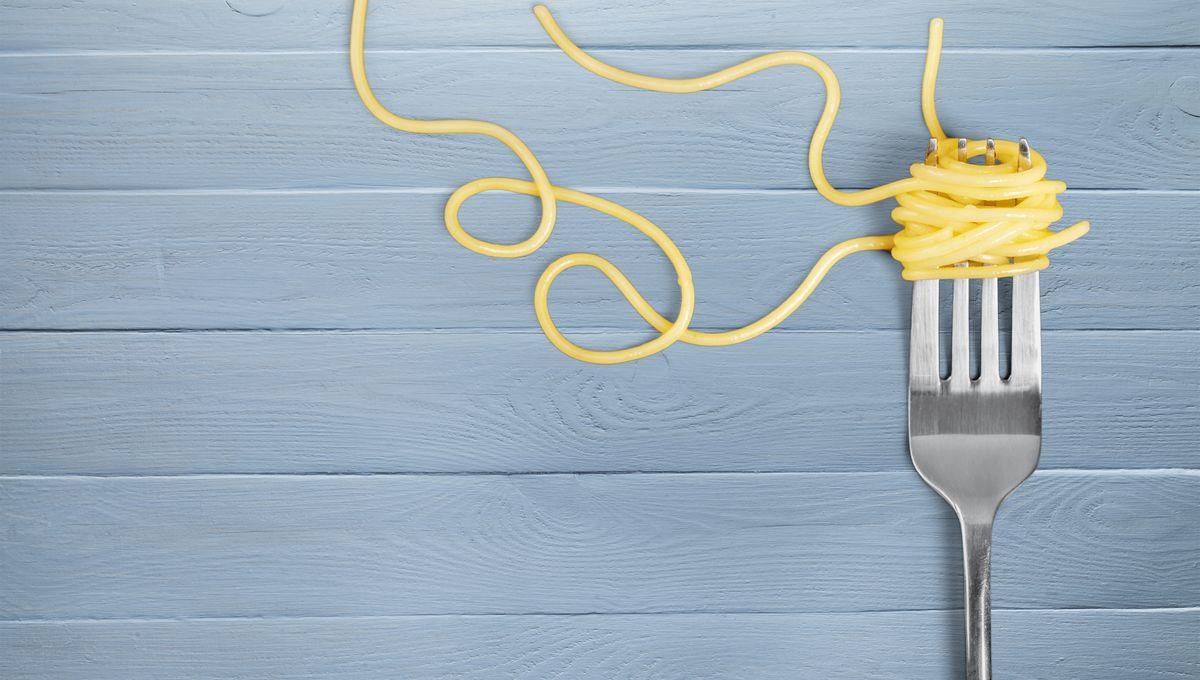-
أخر الأخبار
- استكشف
-
الصفحات
-
المدونات
-
المنتديات
Spaghetti Has Inner Secrets We're Only Just Learning About

Spaghetti Has Inner Secrets We're Only Just Learning About
Even in this modern world, there are still so many things science can’t explain. What goes on inside a black hole? Are we alone in the universe? What’s the secret to human happiness? And perhaps most importantly of all: why doesn’t spaghetti disintegrate when we cook it?
The rest of this article is behind a paywall. Please sign in or subscribe to access the full content. It’s not a trivial question, even if it sounds simple. “Pasta […] has a relatively low glycemic index (GI) meaning that the consumption of pasta results in only a small increase in sugar released in the blood,” explains a new paper investigating the structure and properties of various spaghetti types. “This aspect is particularly appealing since foods with low GI have been shown to reduce the risk of diseases, such as cardiovascular disease, obesity and type 2 diabetes.” However, with increasing diagnoses of celiac disease, gluten intolerances, or just your common or garden fad diets, the demand for gluten-free food has never been higher. And, as anybody who adheres to such a diet can tell you, gluten-free pasta… well, it isn’t always the easiest to get right. It “falls apart,” Viral Shukla, a food scientist at Cornell University who was not involved in the new research, told The Atlantic back in 2023; without the gluten acting as a kind of “scaffold” for the noodle, he explained, the pasta starches swell and soften without retaining any structure, resulting in, to use the scientific term, “mush”. No surprise, then, that “in recent years […] many efforts have also been devoted to maintaining the macroscopic structure of gluten-free pasta, and retaining its low GI,” the new paper says. And these have been perhaps surprisingly high-tech investigations, too: “The structure of pasta has been recently probed in real space, on a scale of some tens of micrometers, by confocal laser microscopy,” the authors point out, while other studies have “combin[ed] magnetic resonance imaging (MRI) and light microscopy” to probe how fast and well water penetrates pastas of various glutenous-ness. This new study has similarly strong science cred – using as it does neutron scattering to explain the differences between gluten-free and gluten-ful pasta. In a process that reads as equal parts painstakingly meticulous and just plain amusing, the team cut strands of spaghetti into tiny pieces and loaded them into their lab’s sample chamber, where they were cooked in mixes of water and “heavy water” – a form of the liquid in which all hydrogen atoms are deuterium, or “heavy hydrogen”, isotopes. Why the strange cooking medium? “By using different mixtures of water/heavy water it is possible to match the scattering length density (SLD), or contrast, of the different [samples],” the paper explains. In other words, with the right proportion of one water to the other, the team were able to highlight very specific components of the cooking pasta in the neutron beam, while leaving all others invisible. The results not only vindicate what we knew about the inner workings of pasta, but also help explain it in higher detail than ever before. As the glutenous noodles cooked, the team saw the starch granules swell up and disperse; the gluten proteins, on the other hand, became insoluble and started to glom together – forming in the process a kind of cage for the would-be escapee starch. In gluten-free pasta, though, this cage was missing – and the starch, now free-range, would easily over-swell. “The gluten-free pasta […] contains an artificial matrix,” explained Andrea Scotti, senior lecturer in physical chemistry at Lund University and co-author of the paper, in a statement Wednesday. But, Scotti added, it “only works optimally under exactly the right cooking conditions – otherwise the structure easily falls apart.” In total, the team concluded that gluten-free pasta is simply much more sensitive to imperfect cooking than its traditional counterpart. “[R]egular pasta has higher tolerance, or better structural resistance, to less optimal cooking conditions,” Scotti explained – meaning that just a few minutes too long on the hob, or slightly too much salt in the water, can be the difference between a lovely spaghetti dish and an unconventional soup. Unfortunately, underdoing either one can be equally as detrimental to your dinner. Up to a certain point, the researchers found, adding salt to the cooking process can help preserve the structure of the noodle: “[using] the right amount of salt is not just a matter of taste – it also affects the microstructure of the pasta and thus the whole dining experience,” Scotti said. It’s enough to make you wonder if the odd lasagna is really worth all this work. After all, as tasty as it is, who has access to heavy hydrogen isotopes and a neutron beam in their home kitchen? But worry not, gluten-free gastronomes: it’s thanks to precisely this kind of work that one day, such accuracy may hopefully one day be unnecessary. “With demand for gluten-free alternatives increasing, we hope that our methods can help develop more durable and nutritious products that stand up to the demands placed on them,” Scotti said – “by both the cooking process and by consumers.” The study is published in the journal Food Hydrocolloids.


